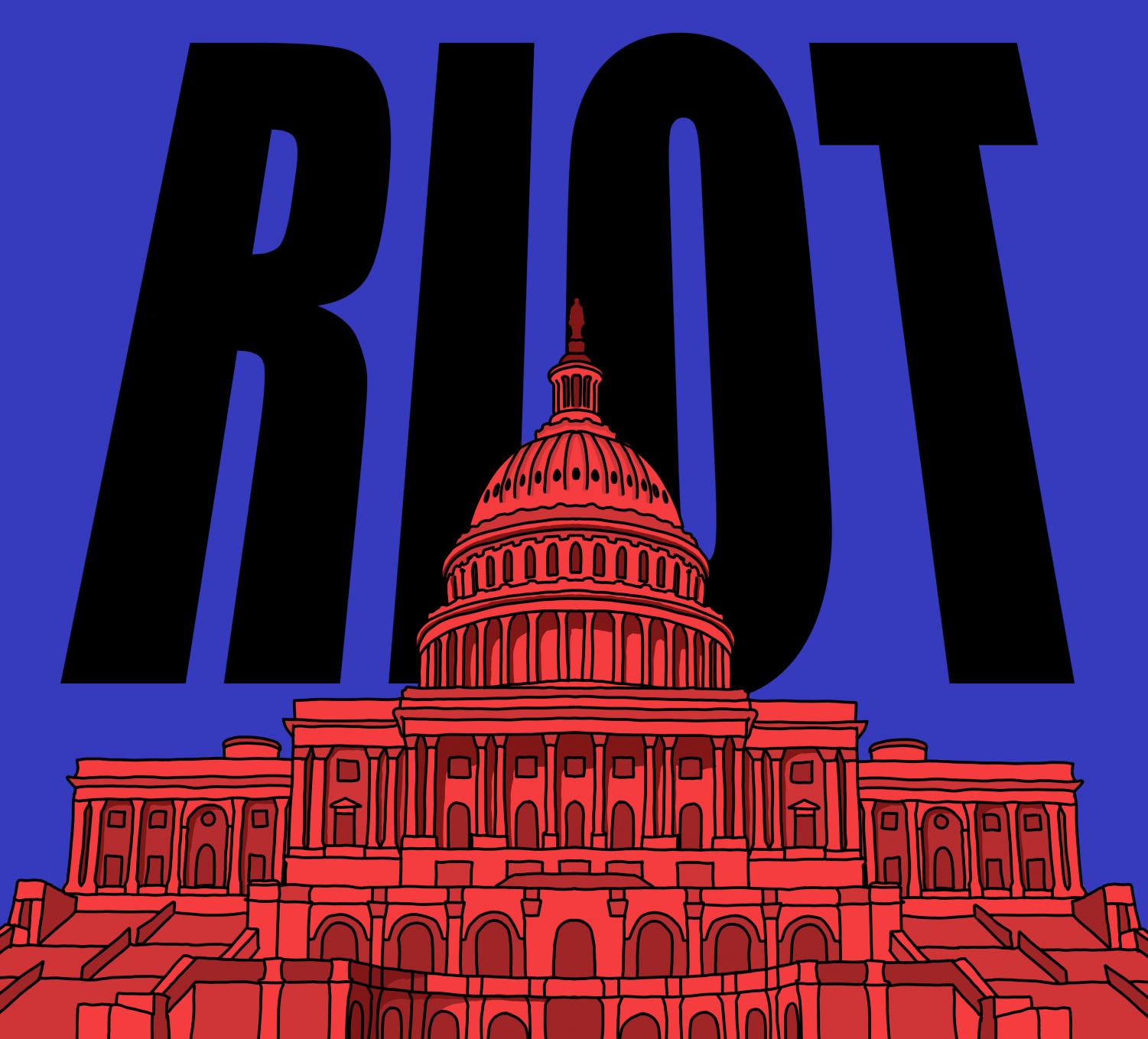
For the first time since the War of 1812, when the British Army invaded Washington D.C, the Capitol was occupied. Thousands of Trump supporters stormed the federal building. It was a bloody event that resulted in countless injuries and five deaths. This week, the Senate trial will begin to adjudicate the second impeachment of former President Donald Trump, which will determine whether to convict him on the basis of his role in inciting the violence on Jan. 6 at our nation’s capitol.
While the riots were largely condemned by members of the public — regardless of political affiliation — there is a clear divide on who deserves the blame. Some believe that the insurrectionists were independent and not representative of true Trump supporters. Others have gone to an even greater extreme through false flag conspiracies that brand the rioters as covert members of “Antifa,” or Black Lives Matter protesters intent on smearing the good name of the former president.
Despite these aforementioned groups, a strong majority of Americans place the responsibility of the attacks squarely on Trump’s shoulders, according to polls conducted by news outlets like NBC and NPR. The same cannot be said for Republicans, where a majority of the party places either little or no blame on the president.
That sentiment will likely feed into the events within the Senate. While Trump was impeached by the House of Representatives on the basis of “inciting an insurrection,”, the Senate requires a two-thirds majority in order to convict and prevent him from holding future public office. Only a handful of Republican senators have come forward expressing their intention to convict, far from the number of votes necessary.
That may appear a just outcome to millions of Americans. Trump was not to blame in their eyes, or if he was, this was merely an isolated event not representative of his character or political career.
Yet, this was not an incident without premeditation, nor were the president’s words at the “March for America” rally on Jan. 6 the only ones that could have been viewed as precipitating conflict. Despite the shock that came with witnessing the unfolding events at the Capitol, it was by no means surprising, given all that had come before.
In the months prior to the election, Trump had crafted a conspiracy and consistently lied about the fragility of the voting process, stating that mail-in ballots were easy to tamper with and even outright forge. In the days and weeks following Nov. 3, Trump expounded on the hacking of ballot machines and the incapacity of poll watchers to prevent such abuses. He leapt from one falsehood to the next with very little evidence to support any of it, nevertheless convincing many of his supporters that one of the greatest injustices in American democracy had just occurred.
Trump’s words had a clear effect. Sites like Parler and Gab became havens for violent discussions about Jan. 6, where plans to storm the Capitol took their primordial form. Users formulated strategies on what to bring, how to enter the building, and methods to avoid law enforcement. The day of the insurrection, Trump’s speech was littered with incendiary statements. He argued, “When you catch somebody in a fraud, you are allowed to go by very different rules.” He told his supporters, “We will never give up. We will never concede. It doesn’t happen. You don’t concede when there’s theft involved.”
Trump had even goaded former Vice President Mike Pence into overruling the electoral vote certification, something Pence had no power to do. At the rally, he said that “if Mike Pence does the right thing, we win the election.” When Pence refused, the president tweeted during the riots that “Mike Pence didn’t have the courage to do what should have been done to protect our Country and our Constitution.” The words “hang Mike Pence” were chanted by many who broke into the Capitol.
“If you don’t fight like hell, you’re not going to have a country anymore,” Trump said. The difficulty in disproving a conspiracy is that every piece of true evidence only serves to strengthen falsehoods. A large group of Americans found it more plausible that from poll-workers to lawmakers to judges, every facet of this election had been infected by a scheming cabal designed to restrict liberties and overthrow democracy. They found all of that more likely than the possibility that their preferred candidate lost.
The future of American democracy hinges on our collective ability to acknowledge reality. That path is made all the more difficult by lawmakers in Congress who wish to simply overlook this event and allow Trump to walk away without consequence. Senators like Lindsey Graham want no more than for the American people to simply “heal and move on,” arguing that impeachment proceedings will only do more harm than good.
Yet, it is impossible to heal when a disease is simply ignored. Even if Trump can be forgiven by some, he must be held accountable for his hand in the violence on Jan. 6. It is not enough to say that a lesson was learned, or that impeachment will simply cause further division. In accepting the former president’s actions, lawmakers are openly inviting further violence to occur and damaging rhetoric to be validated.
(Visited 6 times, 6 visits today)
"do it" - Google News
February 10, 2021 at 03:00PM
https://ift.tt/373Cxre
America needs to heal – impeachment is how we do it - The Bucknellian
"do it" - Google News
https://ift.tt/2zLpFrJ
https://ift.tt/3feNbO7
Bagikan Berita Ini














0 Response to "America needs to heal – impeachment is how we do it - The Bucknellian"
Post a Comment